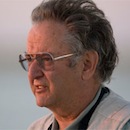Advisory Board and Editors Conservation Biology

Santiago Martín-Bravo
I am an Associate Professor and researcher at Botany Area of the Department of Molecular Biology and Biochemical Engineering at Pablo de Olavide University (Seville, Spain). I am a botanist but I also like to define myself as an evolutionary biologist. My final objective is to contribute to the knowledge and conservation of the biodiversity that surrounds us. My main research interests are on systematics and evolution of angiosperms. I try to answer questions related with the topics of when, how and why are species (and in general biodiversity) generated. I am also very interested in biogeography, this is, explaining the processes causing the distribution of species. To accomplish these task, I use multidisciplinar approaches ranging from classic taxonomy to molecular phylogenetics, estimation of divergence times, cytogenetic evolution, phylo- and biogeographic analyses. Finally, I am also interested in conservation biology, particularly in relation with conservation genetics. I am also the curator of UPOS herbarium

Frank Onderi Masese
Dr. Frank Masese is Senior Lecturer in the Department of Fisheries and Aquatic Science at the University of Eldoret.
He is an aquatic ecologist with broad interests ranging from biodiversity, nutrient cycling, food webs and biomonitoring in streams and rivers.

Fernanda Michalski
Dr. Fernanda Michalski is Associate Professor of Ecology and Conservation of Vertebrates at the Federal University of Amapá, Macapá, Brazil. Member of the British Ecological Society. Her research focuses on understanding the effects of anthropogenic disturbance on Neotropical mid sized and large-bodied vertebrates. She is particularly interested in ecology and conservation of mammals, and in understanding human-wildlife conflicts in the Brazilian Amazon.

Andrew Mitchell
Dr. Andrew Mitchell is a Senior Research Scientist at the Australian Museum Research Institute. His research interests include systematics of noctuid moths (Lepidoptera), molecular phylogenetics, insect diversity, species delimitation and diagnostics, and DNA barcoding.

Hannah S Mumby
Dr. Hannah Mumby is Assistant Professor within the School of Biological Sciences at the University of Hong Kong. Her research focuses on behavioural ecology, applications of animal and human behaviour to conservation and the conservation of large mammals. Dr. Mumby does interdisciplinary work using both natural and social science approaches to conservation science.

Petteri Muukkonen
Dr. Petteri Muukkonen is a senior lecturer in geoinformatics. He is a geographer, and specifically owns a strong background in biogeography and in geoinformatics. He has mainly studied various biogeography and forestry themes in the boreal forest environment. For example, Dr. Muukkonen has studied carbon sequestration and carbon cycle, biomass surveys and monitoring, spatial autocorrelation of soil characteristics, landscape fragmentation, habitat changes and remote sensing of forest landscape. Geoinformatics (GIS and remote sensing) has been present in some way in all of his research topics.

David M Nelson
David is a stable isotope ecologist. He studies diverse topics across various spatial and temporal scales, including the ecology and evolution of C4 grasses, bird and bat migration in the context of renewable-energy development, and forest and watershed biogeochemistry. He is also interested in the development of novel tools for isotopic analysis of small organic materials.

Darren Norris
Lecturer at the Federal University of Amapá, Brazil. My research interests are broad and are currently focused on the conservation of biodiversity and traditional livelihoods around waterways that traverse political (national and international), cultural and ecological boundaries. I am particularly interested in inter-disciplinary approaches, comprising population and community ecology, population biology, landscape and spatial statistics.

Caitlin E O'Connell-Rodwell
Dr. Caitlin Elizabeth O'Connell-Rodwell is a conservation biologist and author. She is an instructor at Harvard Medical School, and scientific consultant, co-founder and chief executive officer of Utopia Scientific, a non-profit foundation promoting the importance of science and conservation.
Dr. O'Connell-Rodwell's research centers on middle-ear mechanics and the low frequency acoustic and bone conduction hearing of species with sensitivity to frequencies below the human hearing threshold—primarily the elephant.

Thiago Parente
Scientist in Public Health at the Laboratory of Functional Genomics and Bioinformatics at the Oswaldo Cruz Institute (IOC, Fiocruz), Rio de Janeiro, Brazil. Scientific coordinator of the Institutional Bioinformatics Platform. CNPq Level 2 Research Productivity Scholar (Genetics). Permanent professor at the Graduate program on Systems and Computational Biology IOC, Fiocruz. Graduated in Biological Sciences - Genetics major - from the Federal University of Rio de Janeiro (2006), with a Master's degree in Cell and Molecular Biology from the IOC (2008) and PhD in Biophysics from UFRJ (2012). Through high performance technologies for DNA sequencing and computational data analysis, I investigate the effects of pollution on fauna, using fish as model organisms, and their responses and genetic adaptations to pollutants, especially those involved in the xenobiotic biotransformation system.

Claire B Paris
Claire Beatrix Paris is a Professor in the department of Ocean Science, University of Miami’s Rosenstiel School of Marine and Atmospheric Science. Director of the Physical-Biological Interactions Lab, she focuses on biophysical dispersion at sea, as well as the transport and fate of pollutants and oil spills from deep-sea blowout. Paris has brought recognition to the key role of behavior of the pelagic larval stage in the connectivity of marine populations and the function of ecosystems.
Paris has developed numerical and empirical tools for her laboratory’s research, both used worldwide: the Connectivity Modeling System (CMS) is an Open-Source Software (OSS) that virtually tracks biotic and abiotic particles in the ocean, and the Drifting In Situ Chamber (DISC) is a field instrument used to track the movement behavior of the early life history stages of marine organisms and detect the signals they use to orient and navigate.

Stuart L Pimm
Doris Duke Chair of Conservation Ecology at the Nicholas School of the Environment at Duke University. His international honours include the Tyler Prize for Environmental Achievement (2010), the Dr. A.H. Heineken Prize for Environmental Sciences from the Royal Netherlands Academy of Arts and Sciences (2006), and the International Cosmos Prize 2019.

